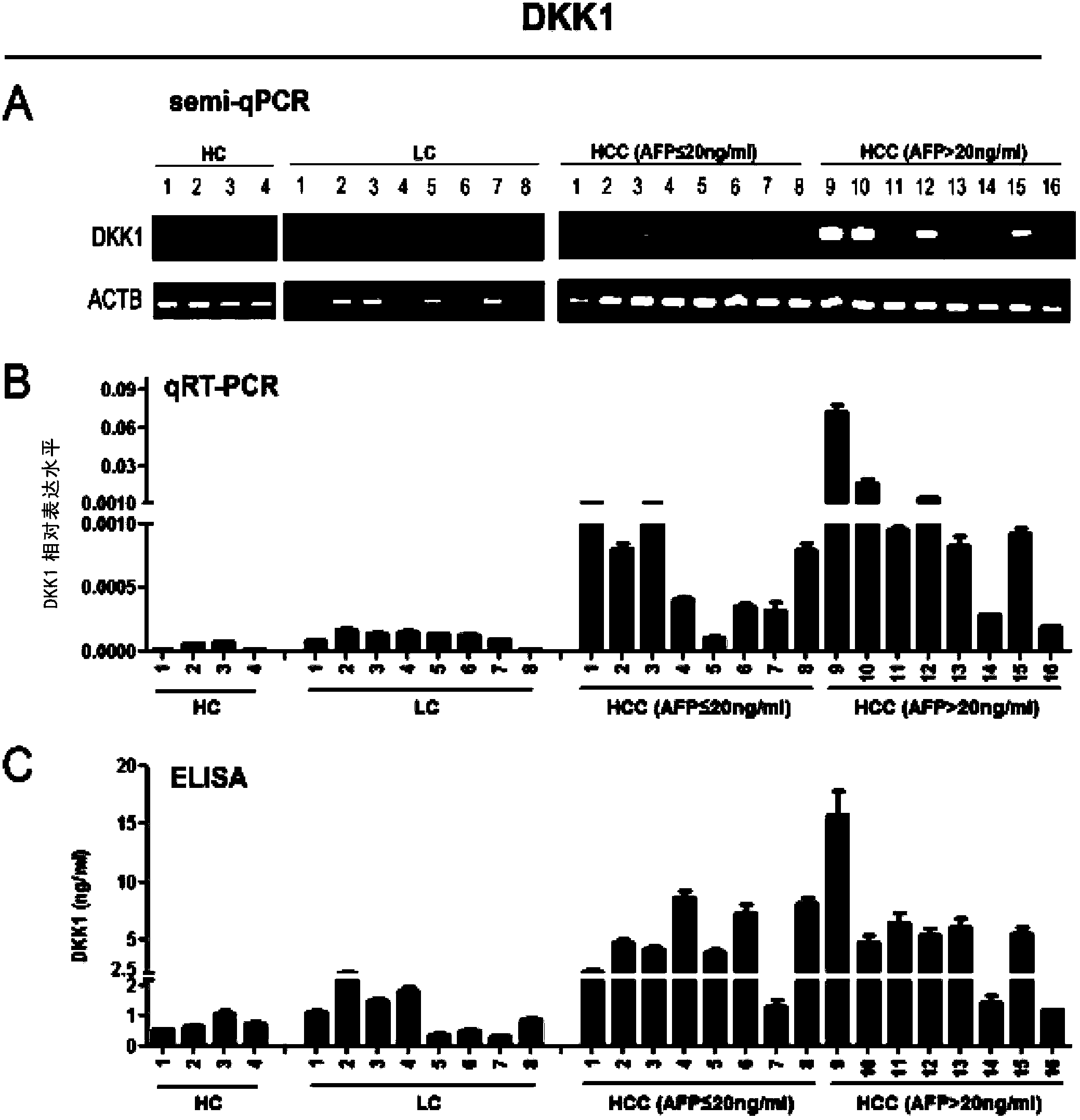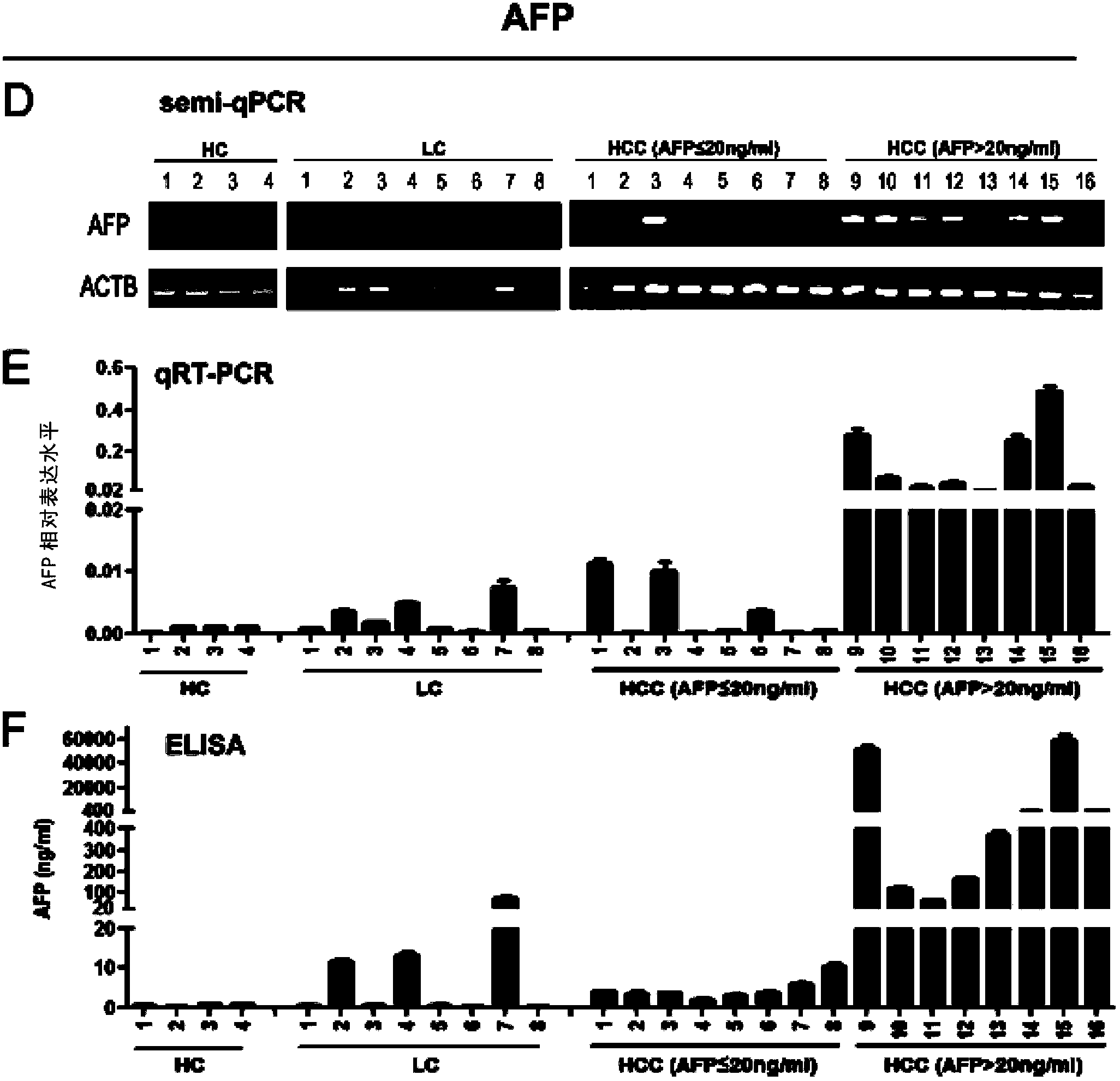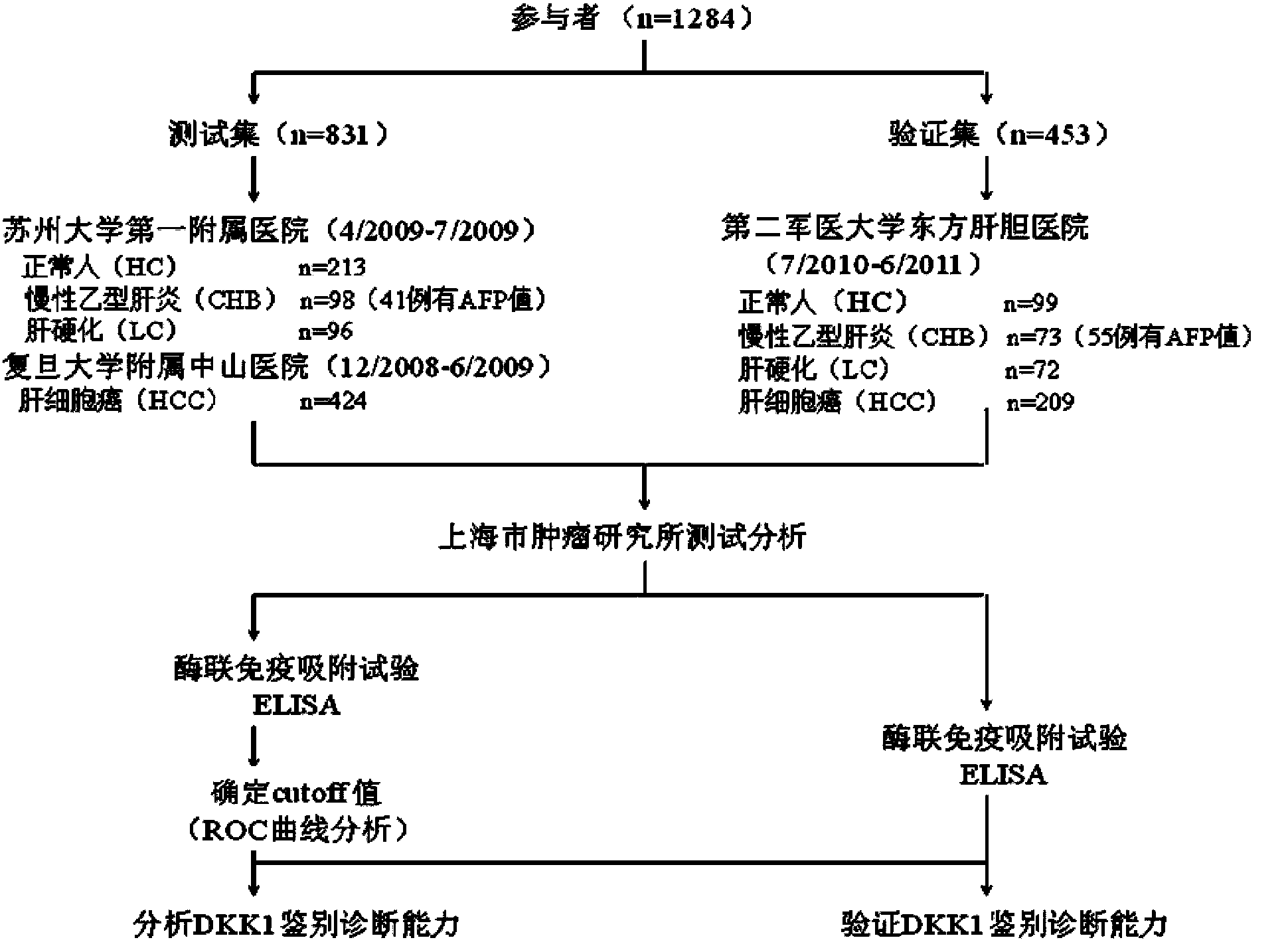Application of DKK1 as diagnostic marker
A use and technology of diagnostic reagents, applied in the field of DKK1 as a diagnostic marker, can solve the problem of unclear diagnostic ability of hepatocellular carcinoma or small hepatocellular carcinoma
- Summary
- Abstract
- Description
- Claims
- Application Information
AI Technical Summary
Problems solved by technology
Method used
Image
Examples
Embodiment approach
[0091] As an embodiment of the present invention, the reagent is an anti-DKK1 antibody; more specifically, it is a monoclonal antibody or a polyclonal antibody.
[0092] Antibodies of the present invention can be prepared by various techniques known to those skilled in the art. For example, purified antigen can be administered to animals such as rabbits, mice, rats, etc. to induce polyclonal antibody production. Various adjuvants can be used to enhance the immune response, including but not limited to Freund's adjuvant and the like.
[0093] Antibodies of the invention may also be monoclonal antibodies. Such monoclonal antibodies can be prepared using hybridoma technology.
[0094] The antibody can be used in immunochemical techniques to detect the level of DKK1 in the specimen, so as to diagnose hepatocellular carcinoma, especially alpha-fetoprotein-negative hepatocellular carcinoma, early hepatocellular carcinoma or small hepatocellular carcinoma, or to judge the risk of d...
Embodiment 1
[0171] Example 1, Comparative analysis of the expression of DKK1 and AFP in non-cancerous liver tissue and hepatocellular carcinoma tissue and corresponding serum
[0172] The present inventors compared and analyzed DKK1 and AFP in 12 cases of non-cancerous liver tissues (4 cases were normal liver tissues, 8 cases were liver cirrhosis tissues) and 16 cases of hepatocellular carcinoma liver tissues (wherein 8 cases of patients had serum AFP≤20ng / ml, and the expression in serum AFP>20ng / ml of the other 8 cases. The results of semi-quantitative reverse transcription polymerase chain reaction (semi-qPCR) and real-time quantitative polymerase chain reaction (qRT-PCR) experiments showed that, compared with AFP, DKK1 was more active in 4 healthy controls (HC) and 8 In cases of liver cirrhosis (liver corrosion, LC), the expression was almost undetectable, but it was highly expressed in most hepatocellular carcinoma tissues (figure 1 A-B, 1D-E).
[0173] Enzyme-linked immunosorbent a...
Embodiment 2
[0175] Example 2. Serum DKK1 is a serum protein marker for the diagnosis of hepatocellular carcinoma
[0176] The inventor according to figure 2 To evaluate the diagnostic ability of serum DKK1 protein in AFP-negative HCC.
[0177] First, the inventors analyzed the expression of serum DKK1 and AFP in each group of the test set. Such as image 3 As shown in A and Table 7, the serum DKK1 protein level of the hepatocellular carcinoma (hepatocellular carcinoma, HCC) group was significantly higher than that of the normal control group (healthy controls, HC), chronic hepatitis B (chronic hepatitis B, CHB) control group and liver In the liver cirrhosis (LC) control group (P image 3 B). The concentrations of serum DKK1 and AFP in each group are shown in Table 8.
[0178] Table 7, the levels of serum DKK1 protein and serum AFP protein in each group in the test set and verification set
[0179]
[0180] Abbreviations: DKK1: dickkopf-1; AFP: alpha-fetoprotein, alpha-fetoprotein;...
PUM
| Property | Measurement | Unit |
|---|---|---|
| Diameter | aaaaa | aaaaa |
Abstract
Description
Claims
Application Information
 Login to View More
Login to View More - R&D
- Intellectual Property
- Life Sciences
- Materials
- Tech Scout
- Unparalleled Data Quality
- Higher Quality Content
- 60% Fewer Hallucinations
Browse by: Latest US Patents, China's latest patents, Technical Efficacy Thesaurus, Application Domain, Technology Topic, Popular Technical Reports.
© 2025 PatSnap. All rights reserved.Legal|Privacy policy|Modern Slavery Act Transparency Statement|Sitemap|About US| Contact US: help@patsnap.com



